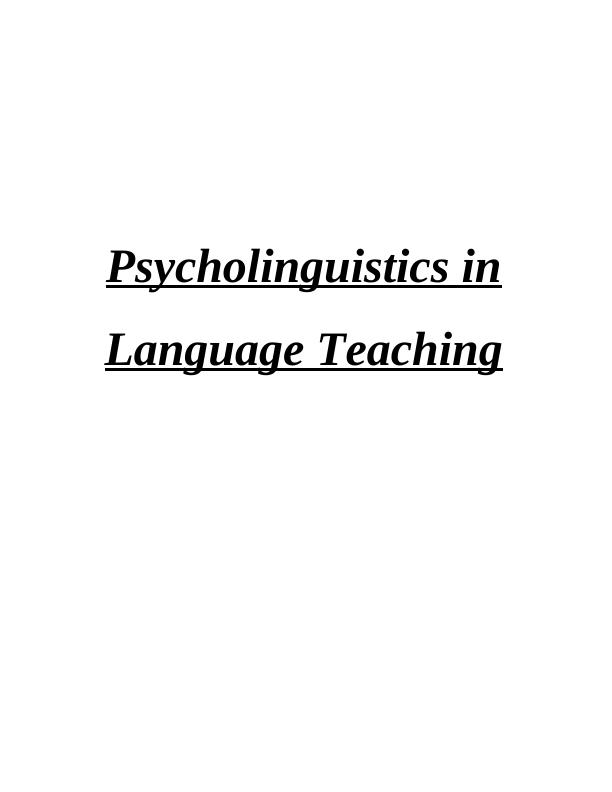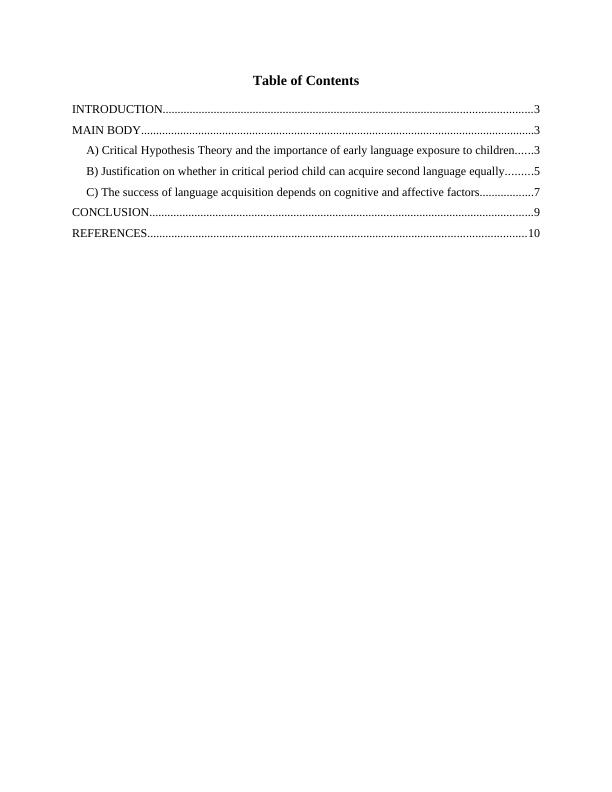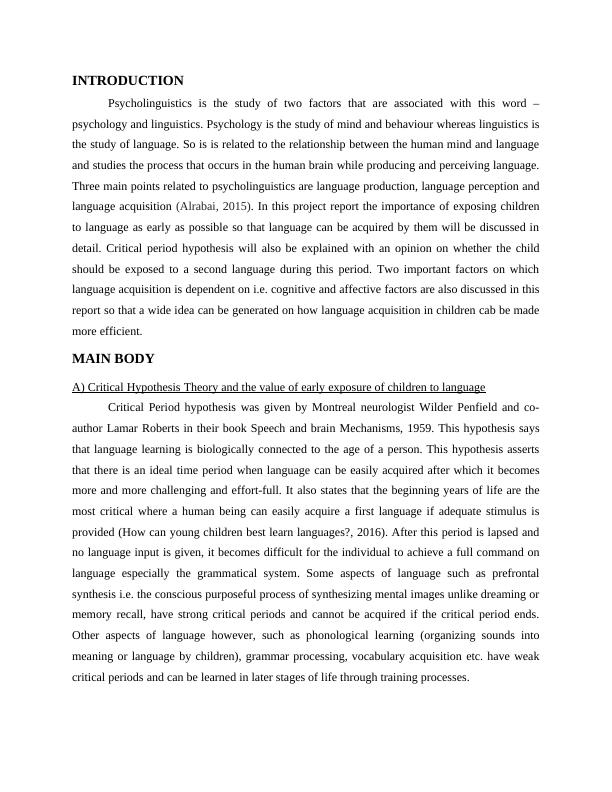Psycholinguistics in Language Teaching pdf
Added on 2021-02-19
10 Pages3455 Words196 Views
End of preview
Want to access all the pages? Upload your documents or become a member.
Psychology Assignment Critical Period Hypothesis (CPH)
|9
|2443
|567
Article Review on Age-Related Research on L2 Ultimate Attainment and Influences of Early English Language Teaching on Oral Fluency
|11
|2763
|288
Development of Second Language Acquisition
|12
|3719
|80
Assignment on Brain Mind and Behaviour
|9
|2426
|252
Developmental Intelligence and Cognitive Development in Children
|3
|769
|255
Critical Period Hypothesis and Acquisition of Language
|6
|1545
|396



